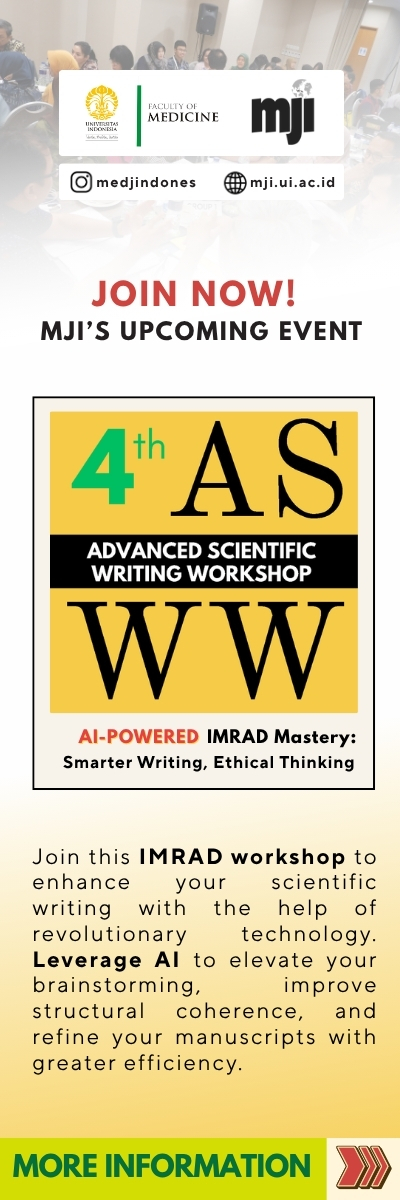Effect of irrigating fluid temperature on core body temperature during transurethral resection of the prostate
DOI:
https://doi.org/10.13181/mji.v14i3.190Keywords:
hyporthermia, body temperature, irrigating fluidAbstract
The objective of this study was to determine the effect of irrigating fluid temperature on core body temperature changes in patients undergoing transurethral resection of the prostate (TURP). A cross sectional study was conducted on 32 patients with benign prostatic hyperplasia (BPH) who underwent TURP at our institution between September 2003 and January 2004. Patients were randomized to one of two groups. Standard group consisted of 16 patients who received room temperature irrigating fluid (± 23.6 0C) throughout TURP. Isothermic group consisted of 16 patients whose procedure was performed using warmed irrigating fluid (± 37.2 0C). The irrigating fluid used for both groups was aquabidest. The age, resection time, weight of resected prostate, amount of irrigating fluid used, temperature in the operating theatre, core body temperature at beginning and at conclusion of TURP were recorded for each patient. The t test was used for comparison between both groups and a p value of 0.05 or less was considered significant. The result of this study showed a decrease of core body temperature during TURP, using either room temperature or warmed irrigating fluid (both p = 0.000). None of the patients in either group demonstrated any criteria of hypothermia. The average decrease of core body temperature in standard group (0.99 0C) was greater than in isothermic group (0.750C), but it was not significantly different (p > 0.05). In conclusion, our study revealed that using either room temperature irrigating fluid or warmed irrigating fluid during TURP could decrease core body temperature at approximately similar level, with no incidence of hypothermia. (Med J Indones 2005; 14: 152-6)
Downloads
Downloads
Published
How to Cite
Issue
Section
License
Authors who publish with Medical Journal of Indonesia agree to the following terms:
- Authors retain copyright and grant Medical Journal of Indonesia right of first publication with the work simultaneously licensed under a Creative Commons Attribution-NonCommercial License that allows others to remix, adapt, build upon the work non-commercially with an acknowledgment of the work’s authorship and initial publication in Medical Journal of Indonesia.
- Authors are permitted to copy and redistribute the journal's published version of the work non-commercially (e.g., post it to an institutional repository or publish it in a book), with an acknowledgment of its initial publication in Medical Journal of Indonesia.





































